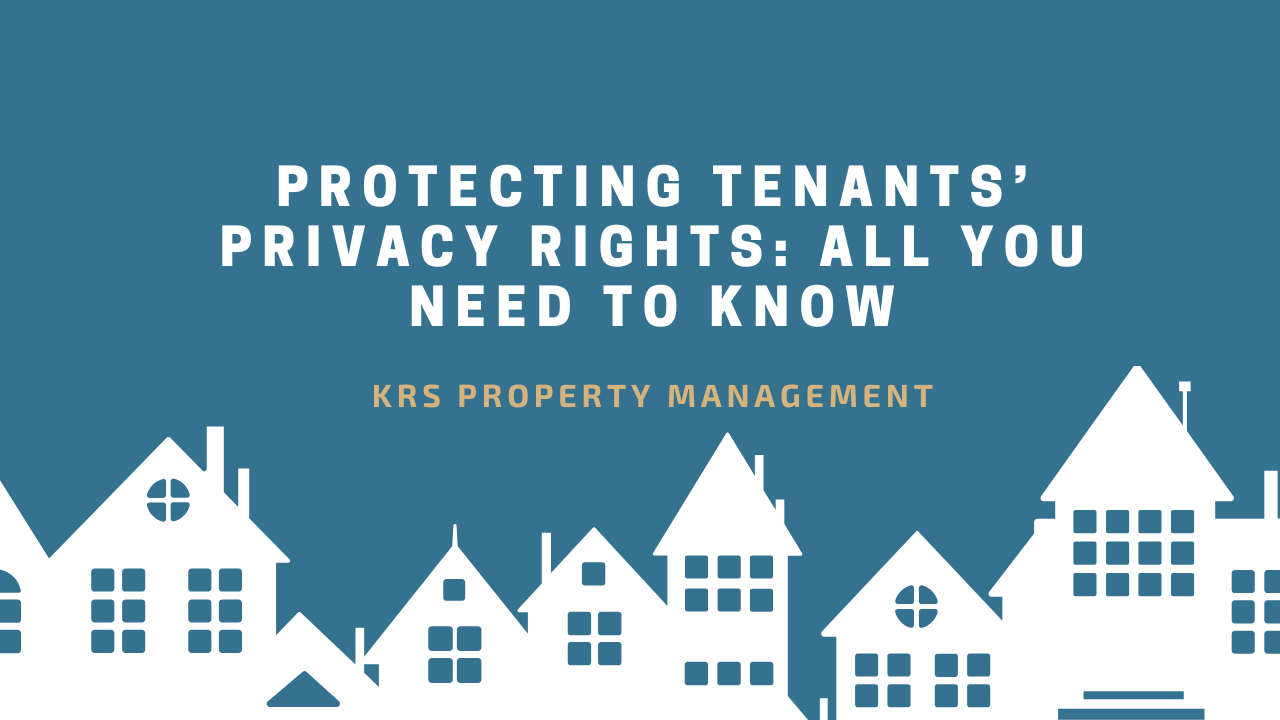
A resident enjoys certain privacy rights under federal and state tenancy laws. As a landlord, understanding what they entail is key to running a successful rental investment. Being knowledgeable of these privacy laws cannot only help with legal compliance, but can also be crucial in fostering a solid landlord-resident relationship.
In this blog, you’ll learn all the nuances of tenant privacy laws.
What is the Implied Warranty of Quiet Enjoyment?
Tenant privacy laws are designed to ensure both the landlord and resident enjoy a harmonious relationship. One important aspect of the resident privacy laws is the resident’s right to quiet enjoyment. A tenant’s right to quiet enjoyment is one of the fundamental principles of resident privacy laws.
It means that a resident has a right to use their rented premises in peace and quiet, without undue disruptions from the landlord or their neighbors. As a landlord, you must uphold this right after establishing a lease with a resident. The following are ways you can do so.
Advance Notice
Landlords have the legal right to enter a tenant’s rented premises, but this must be done carefully to respect the tenant’s privacy rights. Providing advance notice before entering a unit is essential and often legally required.

While state and local laws dictate specific notice periods, a standard practice is to provide at least 24 hours’ notice. Even in cases where state law does not mandate this, including such a requirement in the lease agreement is highly recommended to avoid potential privacy disputes or lawsuits.
Beyond advance notice, landlords must also comply with additional privacy regulations, such as limiting entry to normal business hours—typically between 8 AM and 6 PM on weekdays and 9 AM to 3 PM on weekends.
Additionally, entry must be for a legitimate reason, such as conducting an inspection, addressing emergency situations, or handling maintenance and repair requests. Adhering to these guidelines helps maintain tenant trust and reduces the risk of legal complications.
Emergency Responses
Although few, there are some exceptions to advance notice requirements before landlord entry. Among the exceptions is when responding to emergencies. You won’t have to provide the resident with any advance notice before entering.
The situation must qualify as an emergency, though. For instance, a situation that threatens to harm the resident’s well-being, such as a fire, flooding, or gas leakage.
What is a Landlord’s Responsibility to Protect a Resident’s Personal Information?
Protecting a tenant’s privacy rights also entails protecting their personal information. Resident’s data can include things like their contact information, financial information, and identification documents.

You must keep such information confidential and not share it with third parties without the express consent of the resident. And to avoid unauthorized access, ensure you store it securely, whether physically or digitally.
Ideally, store physical documents in locked cabinets, and digital information using strong encryption systems. In the event of a data breach, notify the affected residents immediately and take some mitigation steps to prevent further harm.
Is it Safe to Use Security Cameras?
As a landlord, you must be cautious about security cameras. Generally speaking, it’s legal to have security cameras in common areas for reasons of deterring crime and ensuring the safety of residents.
But even so, you must typically inform residents about the presence of the surveillance equipment in the areas. It’s, however, illegal to do surveillance on a resident inside their rented premises. You must not install cameras inside their unit without their express permission. This would be an invasion of the resident’s privacy.
The only exception to this is if you have a court order or for specific security reasons. Please make sure to check local laws for further clarification in this regard. Unauthorized surveillance can lead to potential lawsuits by the resident.
What Can a Landlord Do to Ensure the Protection of Tenants’ Privacy Rights?
The following are some steps you can take to ensure the protection of a resident’s privacy rights.

Establish open and respectful communication channels with the residents. Avoid prying into the resident’s personal life or making intrusive inquiries.
Provide the resident with adequate notice before entering their rented premises. Also, only enter the unit for legitimate reasons and do so at normal business hours.
When you visit the resident, be mindful of their belongings and personal space. Unnecessary touching or moving of the items may come across as intrusive.
Schedule a convenient time for viewings. If you need to show the unit to a prospective resident or buyer, make sure to do so at a time that is convenient for the existing resident as well.
Draft a clear and detailed lease agreement. It should clearly and concisely highlight what rights and responsibilities each party has regarding, among other things, the resident’s privacy.
Only ask for necessary information that is key to the landlord-tenant relationship.
Store the resident’s information securely and protect it against unauthorized users.
Respond to emergencies quickly and prioritize the safety of the resident.
Hire a Property Management Company
Without prior landlording experience, many things can go wrong. For instance, inadvertently violating a resident’s privacy rights by entering their rented unit frequently without advance notice.
As a result, you may find yourself battling civil liabilities, criminal charges, and fines and penalties. Luckily for you, hiring an experienced property manager can help you avoid such issues.

A good property manager will have ample understanding of the state’s landlord-tenant laws, including privacy laws related to tenants. They will ensure strict compliance with all applicable laws in all interactions with the resident.
Conclusion
Protecting tenants’ privacy laws is key to running a successful rental investment. A resident has a right to enjoy their rented premises in peace and quiet. On your part, you must ensure legal compliance in this regard.
For expert help when it comes to tenants’ privacy rights, look no further than KRS Holdings. Property owners can count on our reliable service, performance, and responsiveness. Get in touch to learn more!






